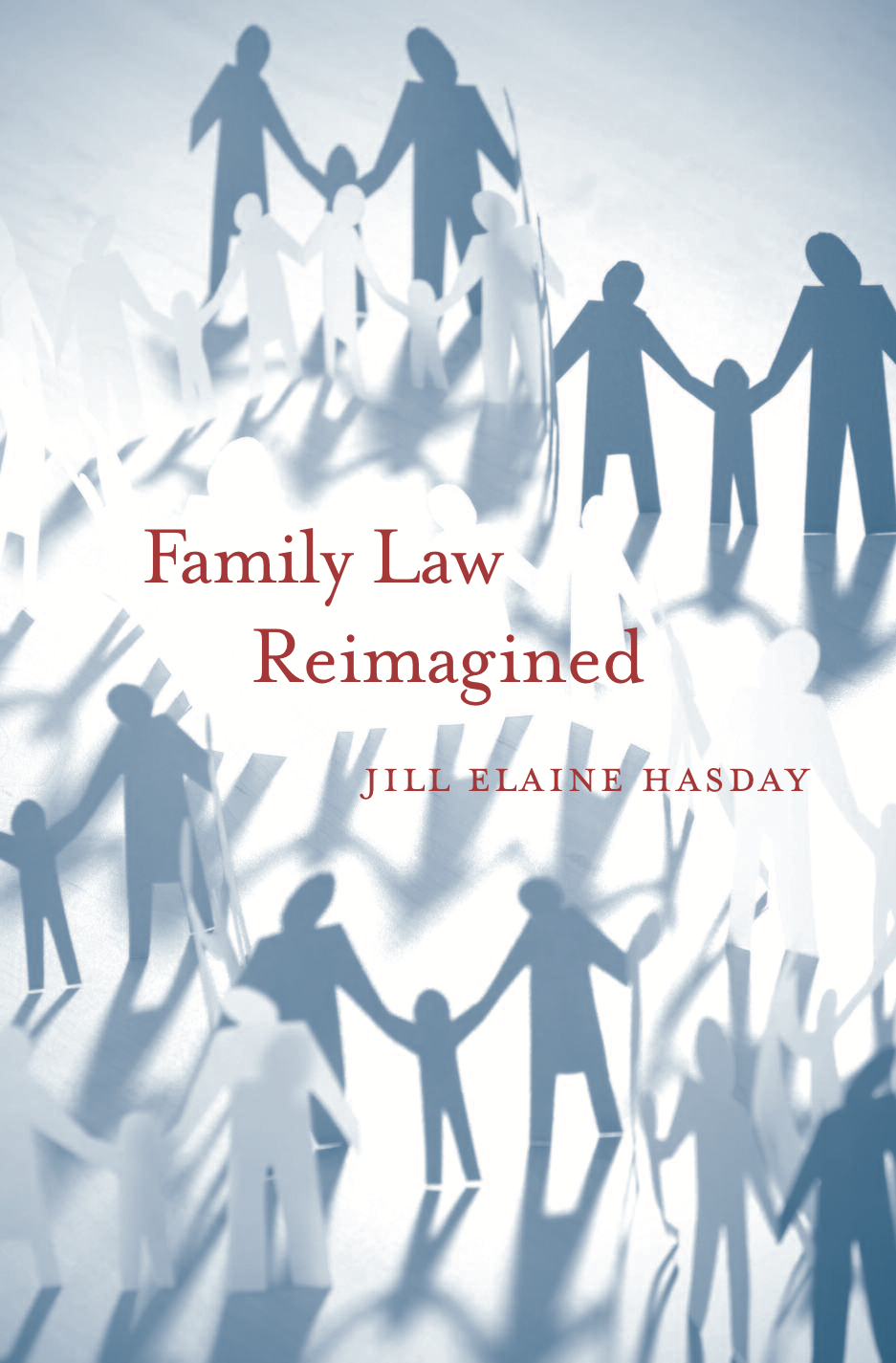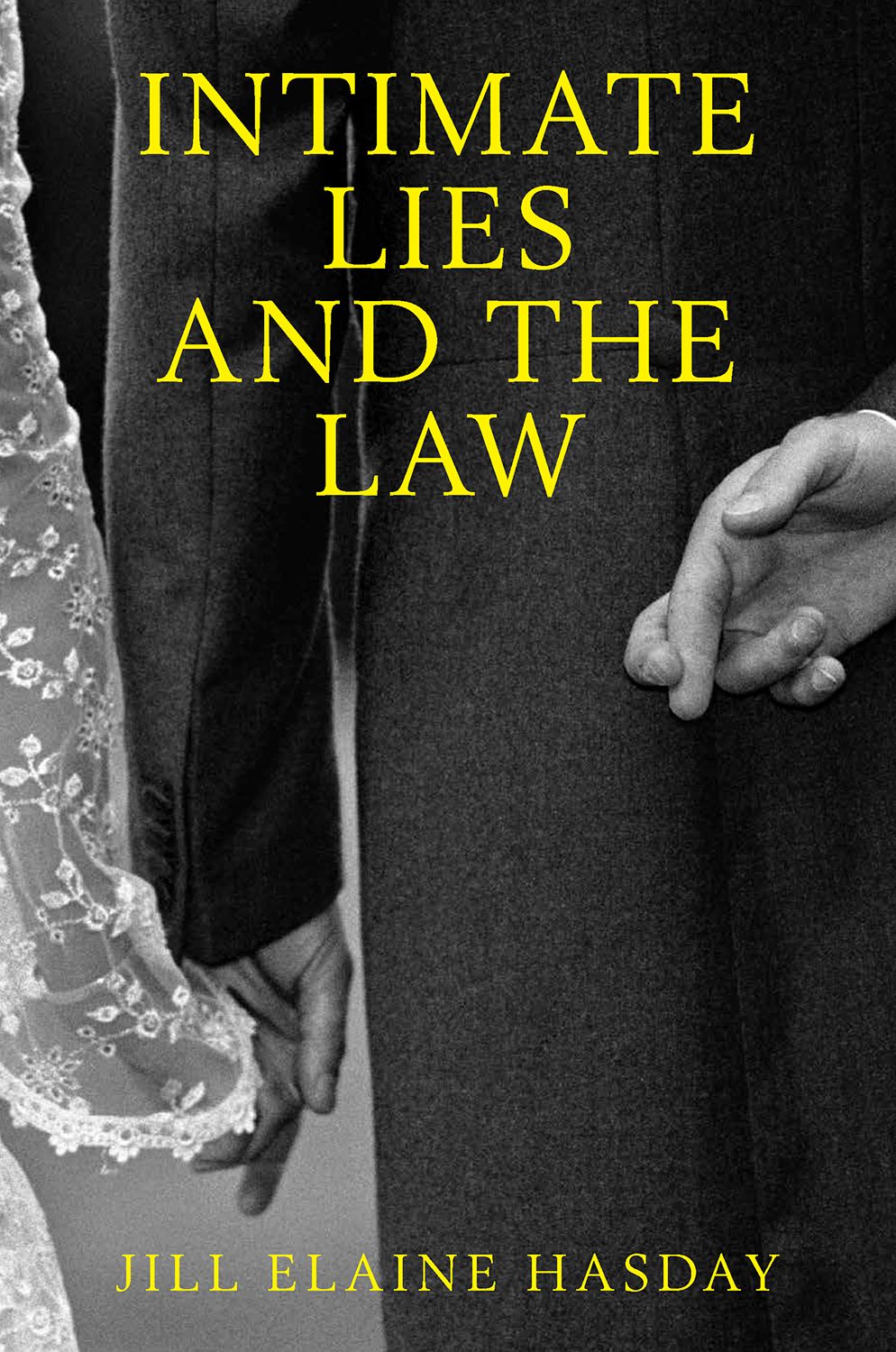Books by Jill Hasday

Family Law Reimagined
One of the law’s most important and far-reaching roles is to govern family life and family members. Family law decides who counts as kin, how family relationships are created and dissolved, and what legal rights and responsibilities come with marriage, parenthood, sibling ties, and other family bonds. Yet despite its significance, the field remains remarkably understudied and poorly understood both within and outside the legal community.
Family Law Reimagined is the first book to evaluate the canonical narratives, examples, and ideas that legal decision makers repeatedly invoke to explain family law and its governing principles. These stories contend that family law is exclusively local, that it repudiates market principles, that it has eradicated the imprint of common law doctrines which subordinated married women, that it is dominated by contract rules permitting individuals to structure their relationships as they choose, and that it consistently prioritizes children’s interests over parents’ rights.
In this book, Jill Elaine Hasday reveals how family law’s canon misdescribes the reality of family law, misdirects attention away from the actual problems that family law confronts, and misshapes the policies that legal authorities pursue. She demonstrates how much of the “common sense” that decision makers expound about family law actually makes little sense.
Family Law Reimagined uncovers and critiques the family law canon and outlines a path to reform. The book challenges conventional answers and asks questions that judges and lawmakers routinely overlook. It calls on us to reimagine family law.
Read more about Family Law Reimagined.

Intimate Lies and the Law
Intimacy and deception are often entangled. People deceive to lure someone into a relationship or to keep her there, to drain an intimate’s bank account or to use her to acquire government benefits, to control an intimate or to resist domination, or to capture myriad other advantages. No subject is immune from deception in dating, sex, marriage, and family life. Intimates can lie or otherwise intentionally mislead each other about anything and everything.
Suppose you discover that an intimate has deceived you and inflicted severe—even life-altering—financial, physical, or emotional harm. After the initial shock and sadness, you might wonder whether the law will help you secure redress. But the legal system refuses to help most people deceived within an intimate relationship. Courts and legislatures have shielded this persistent and pervasive source of injury, routinely denying deceived intimates access to the remedies that are available for deceit in other contexts.
Jill Elaine Hasday’s Intimate Lies and the Law is the first book that systematically examines deception in intimate relationships and uncovers the hidden body of law governing this duplicity. Hasday argues that the law has placed too much emphasis on protecting intimate deceivers and too little importance on helping the people they deceive. The law can and should do more to recognize, prevent, and redress the injuries that intimate deception can inflict.
Entering an intimate relationship should not mean losing the law’s protection from deceit.
Read more about Intimate Lies and the Law.